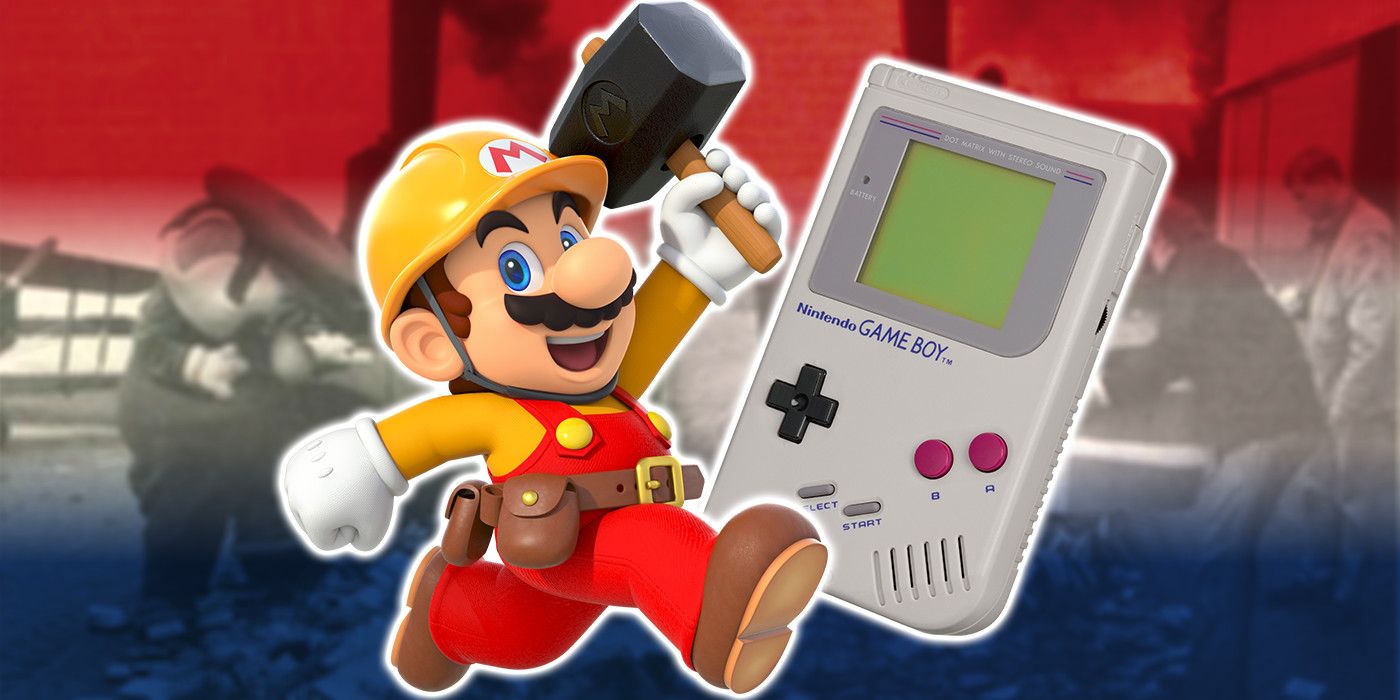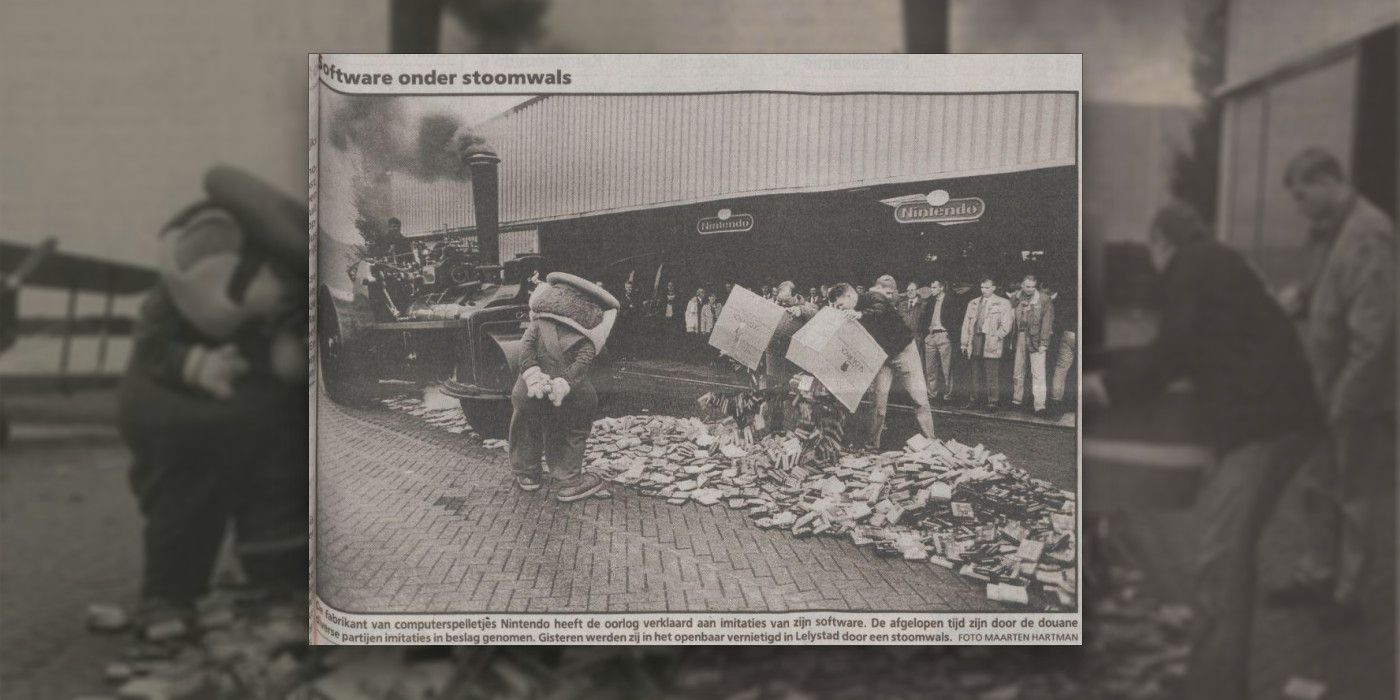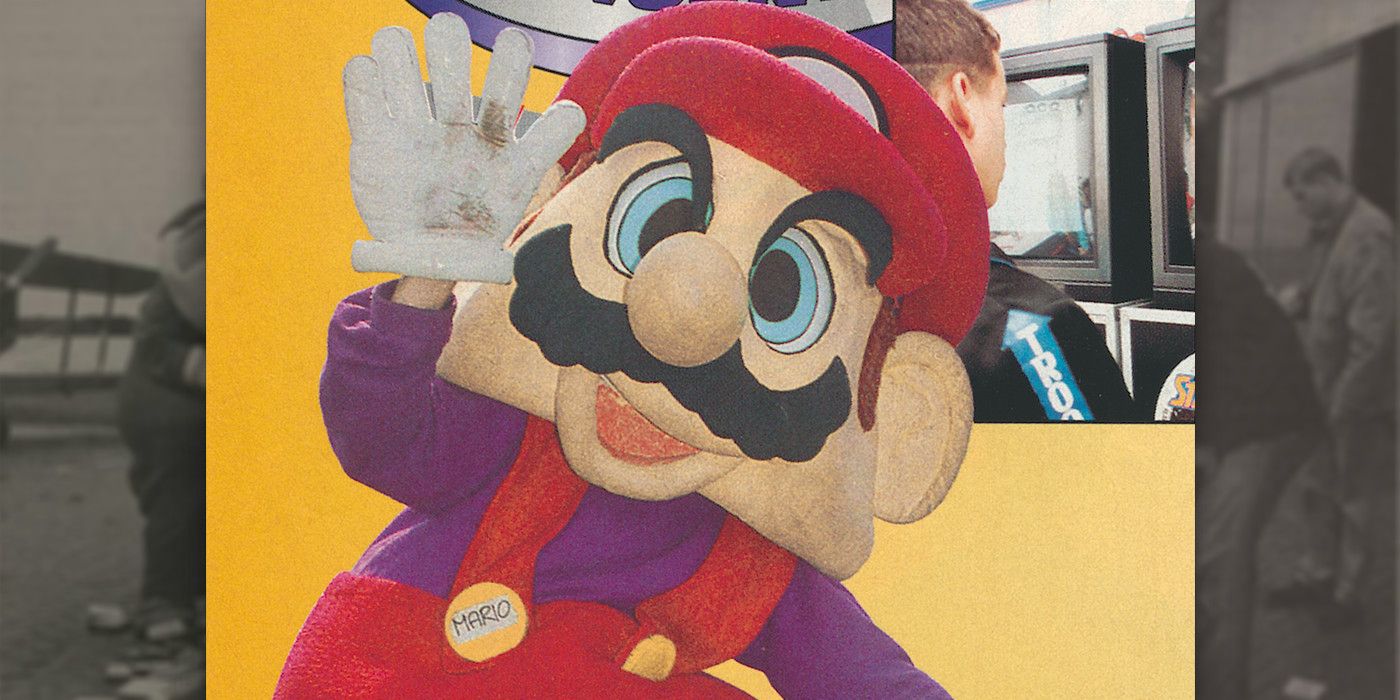
It's no secret that Nintendo has a pretty serious problem with people creating unofficial versions of their games. Fan-made games are considered to be taboo for the company, with their long history of shutting down projects and ROM websites is just one of the many issues modern fans have with Nintendo. Even today, Nintendo continues to fight legal battles against fan projects and emulation websites, with the ongoing lawsuit against the website RomUniverse being the most recent example.
While people online have often joked about Nintendo using intimidation and threats against fan-game creators, Nintendo usually just sends a cease-and-desist order to projects they want to take down. However, there does actually appear to be a documented instance of Nintendo actually using intimidation to discourage piracy, with the entire spectacle being overseen by someone in a Mario costume.

In 2018, the Dutch video game archive website Gamegeschiedenis managed to dig up several newspaper articles that featured a story where Nintendo confiscated roughly 10,000 counterfeit Game Boy cartridges from a Dutch shipping company. The articles report that the counterfeits were being imported from Hong Kong, which appears to be where they were made. This ended up being a pretty significant story at the time, though it wasn't just because Nintendo had confiscated some off-brand game cartridges.
Nintendo ended up having these counterfeit games laid out at an airport in the Dutch city of Lelystad. A steamroller was then brought in to crush them, all while someone in a Mario mascot costume watched on. Some of the images that have been uncovered over the years depict Mario watching the steamroller with his hands behind his back, sometimes stomping on a few of the crushed games himself.
Many of Gamegeschidenis's original findings were brought to international attention by members of the ResetEra forums, where portions of the newspaper articles were also translated. The original poster, a user who went by SoH, mentioned in a reply that these images were found after a collection of newspaper archives became publically available. As more newspapers were combed for mentions of the event, more images were uncovered and posted.

While crushing pirated Game Boy games certainly seems like an extreme way to get rid of some bootlegs that could have led to rare Game Boy games being destroyed, it appears as though Nintendo was more focused on the spectacle of the event. Having someone in a Mario mascot outfit overseeing everything certainly points to this. While several newspapers helped to spread the word by reporting on the event, Nintendo would publish their own coverage in Club Nintendo, a loyalty promotion magazine that Nintendo published monthly in those regions as recently as 2019, with each issue featuring content somewhat similar in style to Nintendo Power.
After destroying bootleg cartridges in Lelystad, Nintendo appears to have included a single-page article in the Dutch publication of the Club Nintendo magazine that highlighted the event. Nintendo's intention seems to have been to try and scare video game pirates into staying away from their systems while also cementing a zero-tolerance policy for piracy. There was also the added benefit of some extra publicity in the Netherlands, as video game archivists have also found a few publicity photos of the Mario mascot at local landmarks. Some fans have suggested that Nintendo was attempting to boost their sales in Europe, though there isn't much to point towards 1994 being a bad year for Nintendo.
Many of the users of ResetEra point out how oddly threatening and almost propaganda-like the entire story is, especially with Nintendo's flagship character overseeing the destruction. Some even speculate that some of those Game Boy games might've been grey import, which is a term for legally imported goods that don't come from the original manufacturer. There isn't too much information available beyond what has already been put out by archivists, leaving this strange display of dominance as a wild footnote in Nintendo's fight against video game piracy.
0 Comments